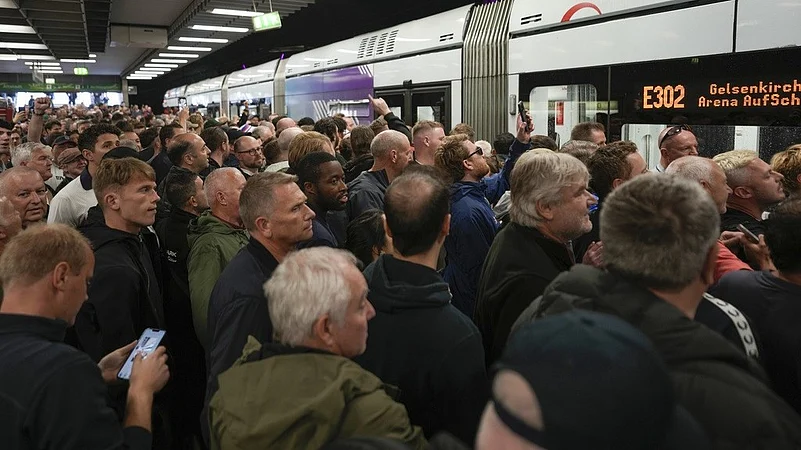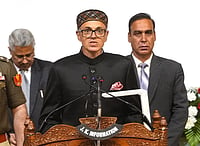Complaints from soccer fans about transportation issues around the European Championship game between England and Serbia in Gelsenkirchen were downplayed by local authorities on Monday. (More Football News)
UEFA Euro 2024: Fans Left Frustrated By Transport Issues; German Authorities Dismiss?Concerns
Supporters experienced long and crowded lines for trams to and from Arena AufSchalke for England's 1-0 win on Sunday, while late-night delays on the network added to the frustrations

Supporters experienced long and crowded lines for trams to and from Arena AufSchalke for England's 1-0 win on Sunday, while late-night delays on the network added to the frustrations.
There were reports of some fans deciding to walk the 6-kilometer (3.7-mile) journey from Gelsenkirchen's city center to the out-of-town stadium along a dual carriageway. Others were still waiting at Gelsenkirchen's main train station three hours after the game ended because of delays, with some having been asked to disembark from trains to control the flow.
An England supporter group described the transport problems as “quite simply ridiculous" and targeted criticism toward UEFA, the tournament organizer.
“If UEFA are going to allocate a 9 p.m. kick-off slot on a Sunday evening to any venue then they need to guarantee that transport arrangements are in place that allow all fans, including those going to fan zones, to travel safely, comfortably and conveniently both to, and crucially back from the venue,” read a statement issued by the Football Supporters' Association.
The FSA said the transport to the stadium from fan zones and the city center featured “not enough capacity, poor queue management and communication and severe delays to services" and urged an “urgent and thorough review of arrangements.”
Speaking at a news conference the morning after the game, Gelsenkirchen officials said they were satisfied with how transport to and from the match went, and defended it when challenged.
“At such a big event, of course it isn't possible to get everyone to where they want to go in the shortest time,” city official Ludger Wolterhoff said. “I think we must reflect on whether we could still accelerate something, but I will say very clearly that … we took a look every 15 minutes at the situation with people leaving and reacted.”
Wolterhoff said “the railway connections worked and the extra bus connections we laid on worked.”
“But I don't think you will be able to significantly further accelerate such a departure situation structurally,” he said.
The Deutsche Bahn train network, a tournament sponsor, said it was in contact with authorities to analyze the transport flow and were told by police there were significant backlogs but no serious issues, while the behavior of supporters was praised.
UEFA came under pressure after complaints by fans about logistical issues at recent Champions League finals, such as in Paris in 2022 and Istanbul in 2023.
Overseas visitors to Euro 2024 are reliant on public transport to get to stadiums and many have fond memories of a well-functioning train network when Germany hosted the World Cup in 2006. Eighteen years later, there have been regular delays and cancellations.
There was particular scrutiny on the England-Serbia match because it was tagged “high risk” by police because of the reputations of both sets of supporters. Fans were restricted to low alcohol beer at the stadium.
“It is remarkable that, despite facing the consequences of such inadequate provision and negligent crowd management, the thousands of England fans present remained overwhelmingly calm, restrained and compliant, thus helping to avoid more serious consequences,” the FSA said.
























